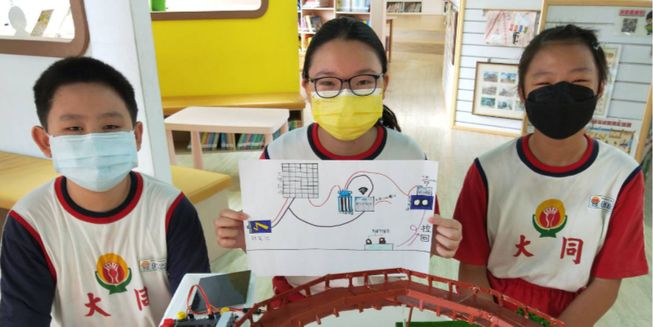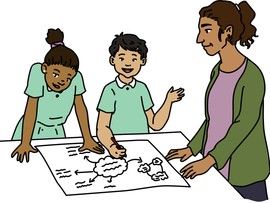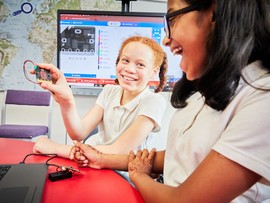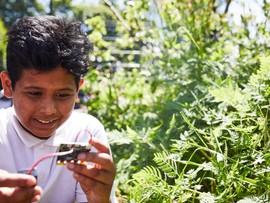Students’ invention protects birds from effects of climate change
Cheng-En, Ko-Hsin and Zi Qing in Taiwan designed a device to protect birds’ nests from rising river water levels
The students realised that rapid climate change was contributing to rising water levels in Taiwan, putting birds who previously relied on the river for their habitats in danger. Using the BBC micro:bit, the ‘Best birds guardian’ senses rising water and pulls the bird's nest to safety on the river shore.
The invention uses a water level measuring device and a servo motor. When the water level sensor senses that the water has risen to a certain height, it sends a signal to activate the servo motor. This pulls a rope and drags the birds’ nest guardian back, away from the rising water. The device uses solar energy to be even more environmentally friendly.
This creative idea is the winning entry in the 2021 8 to 14-year-old category for Asia and Pacific. It aimed to solve an issue related to Global Goal 13, Climate change.
How the birds’ nest guardian works
The do your :bit challenge is an annual competition which sets young people the challenge to innovate and design solutions relevant to the impacts of the Global Goals that are meaningful to them.

We hope that more birds will inhabit the rivers of the community, and everyone will work together to protect the ecological environment and make our community more complete and beautiful.

Cheng-En, Ko-Hsin and Zi Qing, winner 2021, 8 to 14-year-old category for Asia and Pacific.

Cheng-En, Ko-Hsin and Zi Qing with their model.
Children and young people innovating with technology
The do your :bit challenge adds social purpose to digital learning and allows students to apply their digital skills to real world solutions. All projects and lesson resources are available for free and entries can be submitted into two age-range categories, 8 to 14-year-olds and 15 to 18-year-olds. 8 to 14-year-olds can submit either a paper prototype or working micro:bit solution.
Read about all of this year’s winning entries.
The next do your :bit challenge opens in early 2022, you can find out more about the challenge and access Global Goals project resources and lessons here.


